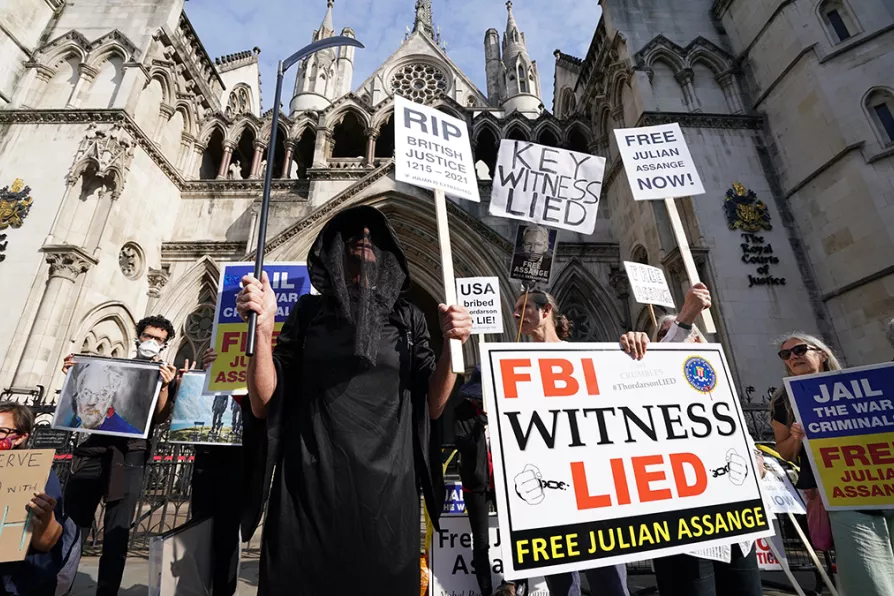The selection, analysis and interpretation of historical ‘facts’ always takes place within a paradigm, a model of how the world works. That’s why history is always a battleground, declares the Marx Memorial Library


CLAIR DOBBIN QC and James Lewis QC, who represent the US, are ferocious advocates. Their appeal will call into question the specialisations, motivations and reputations of expert witnesses. At an earlier hearing, the US team successfully argued that Professor Michael Kopelman’s failure to disclose facts about Assange’s family meant that his entire testimony was open to question — despite the eminent psychiatrist having a reasonable explanation for his omission.
The courtroom battle will be brutal, vicious and public. What has become clear in recent days, however, is that there is an equally fierce dispute going on elsewhere that could have an even greater impact on Assange’s future. It is taking place behind closed doors, however.
Assange is currently being held at Belmarsh prison in London, awaiting the outcome of legal manoeuvres to prosecute him in the US for charges relating to classified files that Wikileaks published in 2010. After five weeks of hearings in 2020, District Judge Vanessa Baraitser dismissed the US application to extradite the Australian. Her grounds were that the US penal regime was such that it would increase the likelihood of Assange taking his own life, which she deemed “oppressive.” It is this judgement the US is appealing.

Washington and its Western allies decry human rights abuses while arming and shielding Israel, turning contradiction into policy, argues RAMZY BAROUD

Former judge ANSELM ELDERGILL examines the details and controversy of Lucy Letby’s trial and appeal in the context of famous historical wrongful convictions that prove both the justice system and legal activists make errors

SOLOMON HUGHES highlights a 1995 Sunday Times story about the disappearance of ‘defecting Iraqi nuclear scientist.’ Even though the story was debunked, it was widely repeated across the mainstream press, creating the false – and deadly – narrative of Iraqi WMD that eventually led to war











